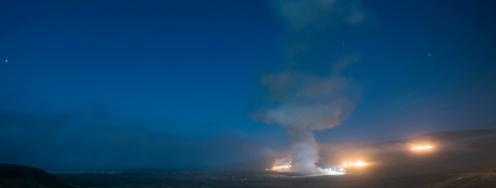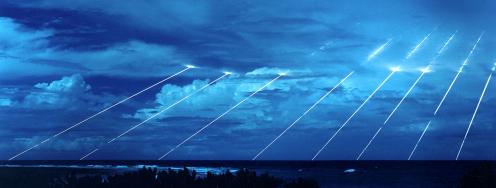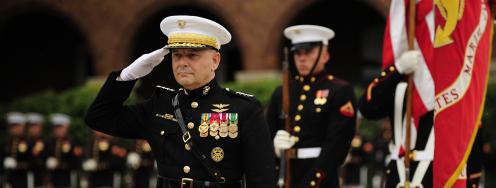Priorities for Iran Talks
On the radar: Focus on the achievable; 21st century nuclear strategy; Zakaria on a compromise; The North’s ICBM development, countermeasures; Nasr, Takeyh, Perkovich and Sadjadpour; Seoul patchwork; Nuclear challenges, election year; Beware faulty intelligence; and Headline of the week.
On the radar: Focus on the achievable; 21st century nuclear strategy; Zakaria on a compromise; The North’s ICBM development, countermeasures; Nasr, Takeyh, Perkovich and Sadjadpour; Seoul patchwork; Nuclear challenges, election year; Beware faulty intelligence; and Headline of the week.
Priorities - “The best way to get this process [negotiations with Iran] underway is to focus on smaller, achievable steps,” write Daryl Kimball and Greg Thielmann.
--Recommendations: Halting and reversing Iran’s accumulation of 20%-enriched uranium should be a top priority for this round of talks; improving Iran’s cooperation with the IAEA should be a near-term goal, and shutting down Fordo is probably too much to ask for now. http://owl.li/aeDCb
Rethinking nuclear strategy - The nuclear guidance review is a real opportunity to resize the nuclear force for the 21st century, writes Lt. Gen. Dirk Jameson in The Hill.
Gen. Jameson’s recommendations for how to think about the right level for our nuclear deterrent: 1) Keep nuclear policy non-partisan. 2) “Having more weapons doesn't mean we are ‘winning.’” 3) The Cold War era of massive nuclear arsenals is over. And 4) “we must work with other nations to mutually reduce unnecessary weapons”. http://owl.li/aeDLT
Smart compromise - “A robust deal is possible if, as with any successful negotiation, both sides can come away with something,” writes Fareed Zakaria in The Washington Post.
--Iran seems willing to agree to halt 20% enrichment, a key element of the U.S. opening position, and a compromise might be reached on the 20% stockpile question. http://owl.li/aeDGv
Welcome to Early Warning - Subscribe to our morning email or follow us on twitter.
--Have a tip? Email earlywarning@ploughshares.org. Want to support this work? Click here.
The North’s ICBM force - While international attention is on North Korea as it fuels up for its “space launch,” Joshua Pollack sees a bigger picture: the gradual unveiling of an ICBM force. The full analysis is at 38 North. http://owl.li/aeDI1
Countermeasures - “It’s striking that Pyongyang, which presumably cannot afford to build a large fleet of intercontinental missiles, has opted to pursue the ICBM course in the face of the American missile defense deployment in Alaska and California (the Ground-based Midcourse Defense, or GMD). That decision implies some real confidence in North Korea’s countermeasure technology.” Also from Pollack at Arms Control Wonk. http://owl.li/aeDKj
Iran talks preview - “Nuclear talks aim to ease fear of Iran war,” by Friedrik Dahl in Reuters. http://owl.li/aeDDO
Event - “Negotiating with Iran: Istanbul and Its Aftermath” with Vali Nasr, Ray Takeyh, George Perkovich, and Karim Sadjadpour. Monday the 16th, 12pm, at Carnegie. Details and RSVP here. http://owl.li/aeDOn
Small ball in Seoul - The Nuclear Summit in Seoul fell short by not unifying the existing patchwork of voluntary measures aimed at preventing global nuclear terrorism. President Obama needs to tell U.S. officials to “stop playing small ball” and work with the next summit’s hosts to support a framework convention on nuclear security, write Kenneth Brill and Kenneth Luongo for McClatchy. http://owl.li/aeDVF
The Post on Iran - Writes The Washington Post editorial board, “For those who, like us, believe that military action against Iran is neither necessary nor wise in the coming months, a deal in which Iran met the administration’s terms would be a relief — but an unsatisfying one. It probably would prevent war. But the risk is that it would be counterproductive in the medium term, because it would ease what is now mounting economic pressure on Iran and allow the regime breathing space.” http://owl.li/aeDRg
Iran, North Korea, and US elections - This week brings both “opportunities and serious tests” for the Obama administration with the P5+1 talks with Iran and the North Korea rocket launch. Jay Solomon and Carol Leet for The Wall Street Journal on how these nuclear challenges will figure in election politics. http://owl.li/aeDSC
Small mistakes, big consequences - “Relying on intelligence as the chief touchstone for decisions about whether and when to attack creates a wide opening for misunderstandings,” writes Ronen Bergman in The New York Times. “Both Israel and America should acknowledge that scraps of information cannot serve as the basis for action against Iran, and they should find new criteria for such a decision.”
--Direct communication can help fill the information gaps, Bergman adds. “A continuing dialogue between Iran and the West...can reveal or clarify information about Iran and its decision making that would not have surfaced otherwise.” http://owl.li/aeDUw
Time for CTBT - ”The [recent National Academy of Sciences] report proves we are now in a position to detect, deter and confront nuclear testing and nuclear proliferators. This report should compel us to act, just as radioactive fallout from nuclear tests compelled mothers to act 50 years ago,” writes Kathy Crandall Robinson in The Hill. http://owl.li/aeDWT
Really, headline editors? - “The Rocket in Kim Jong Un’s Pocket,” by Nick Hansen in Foreign Policy. http://owl.li/aeDYv



